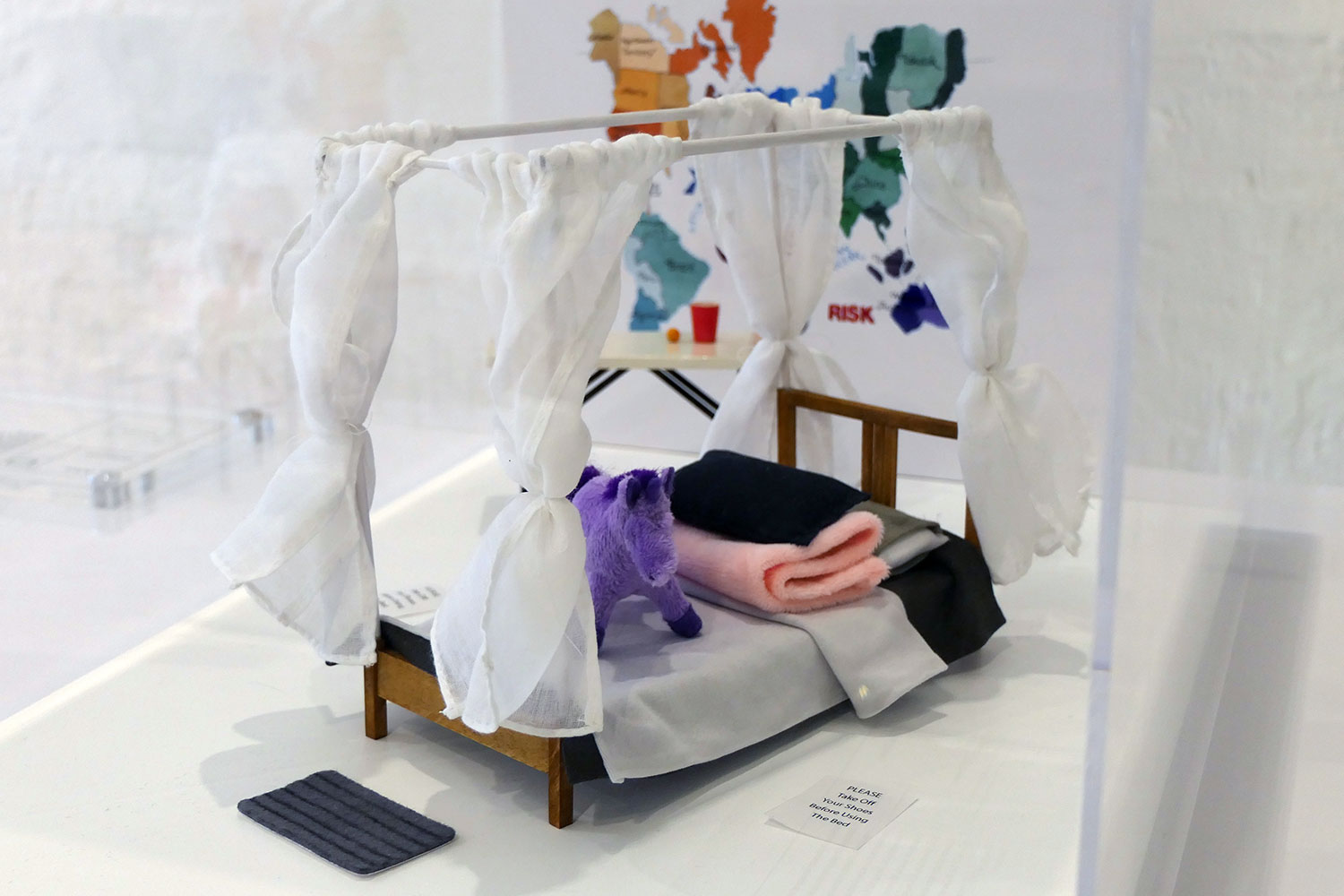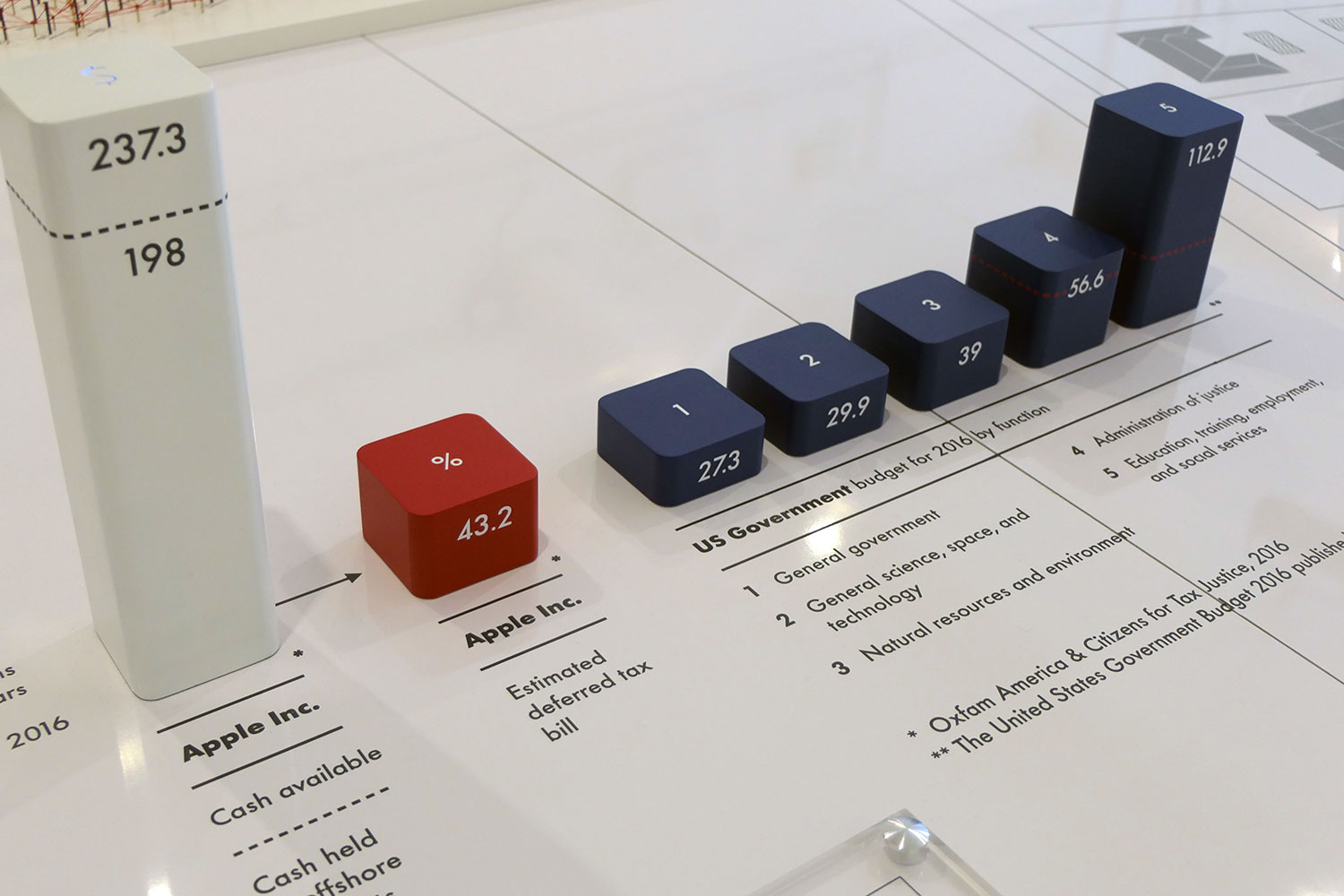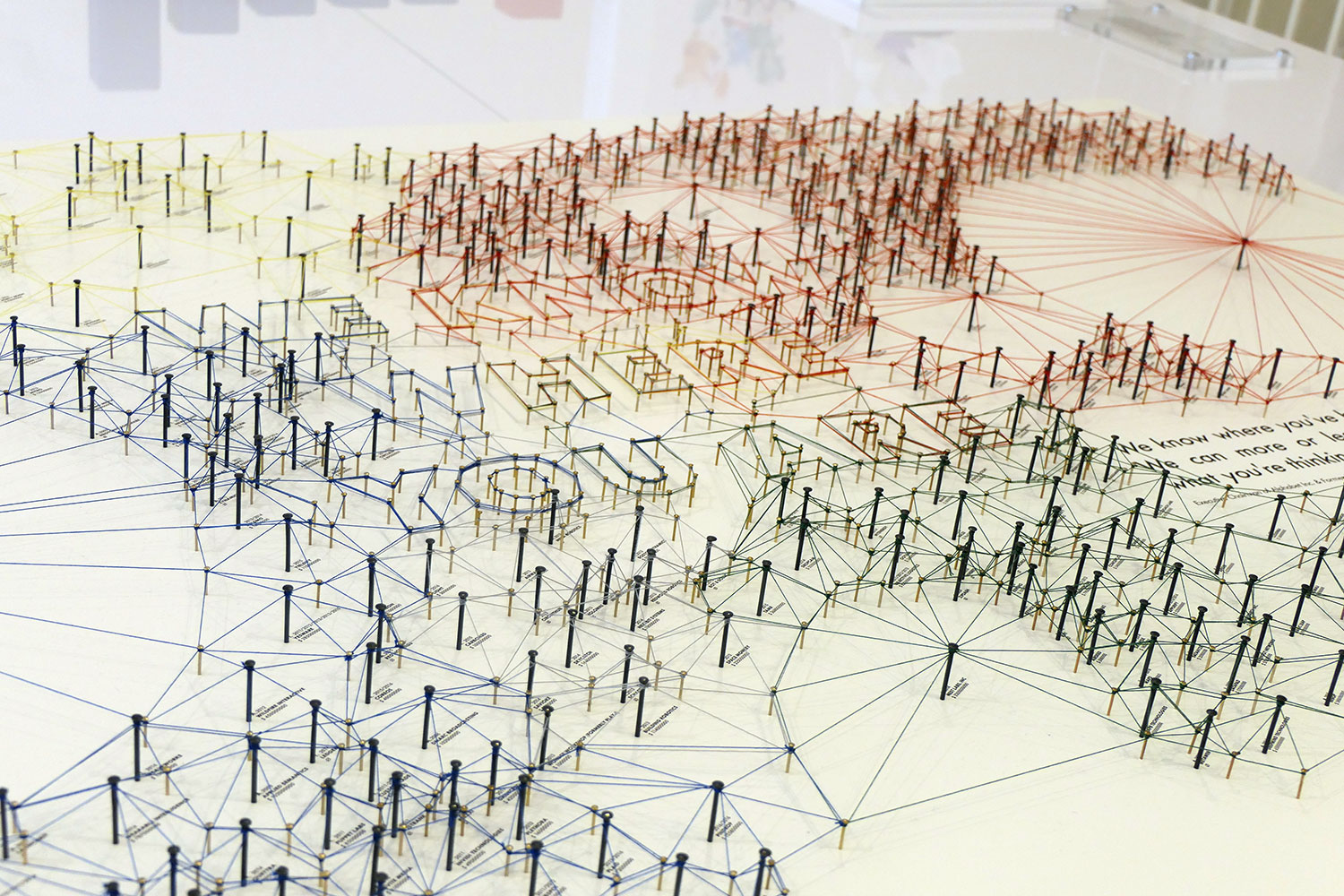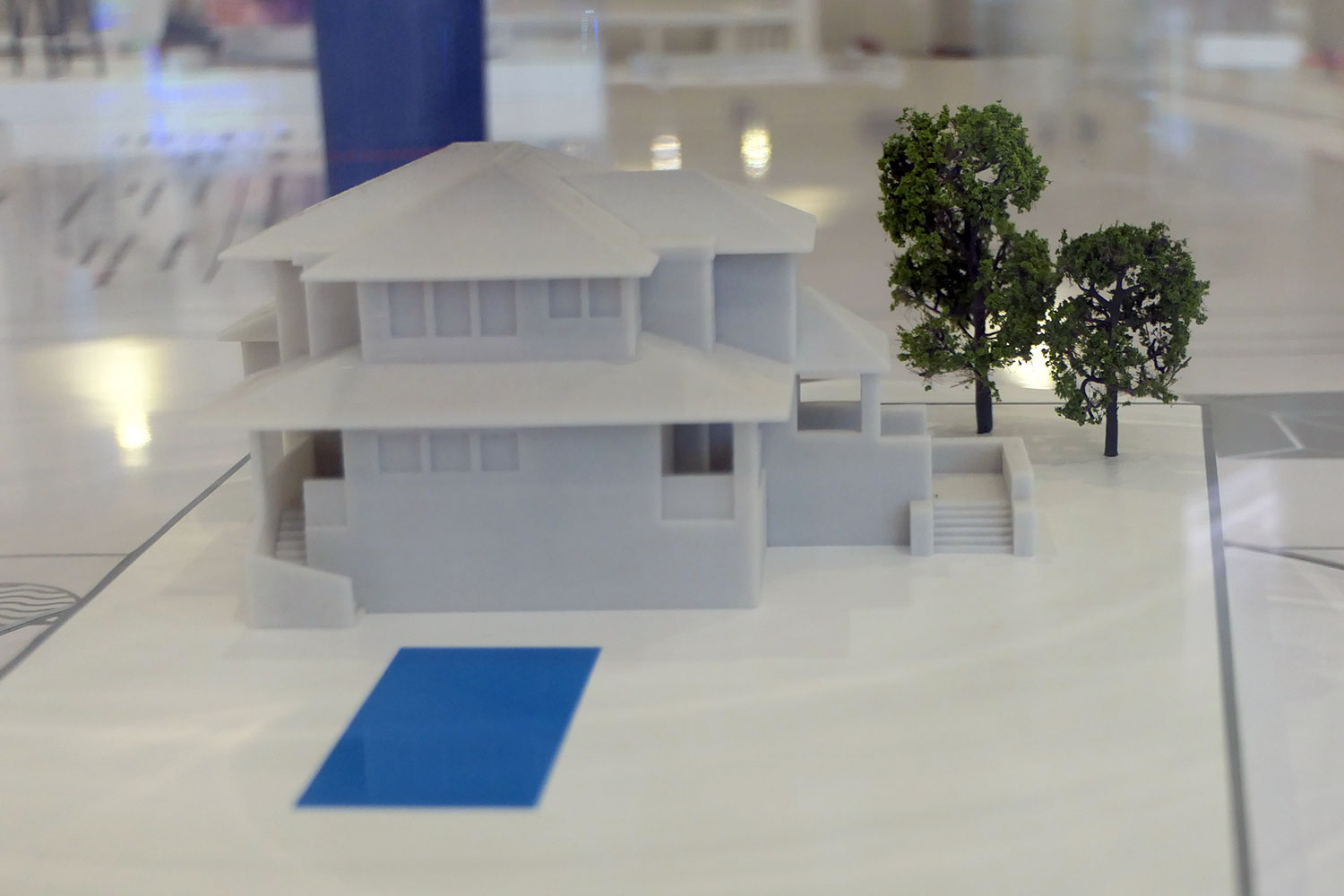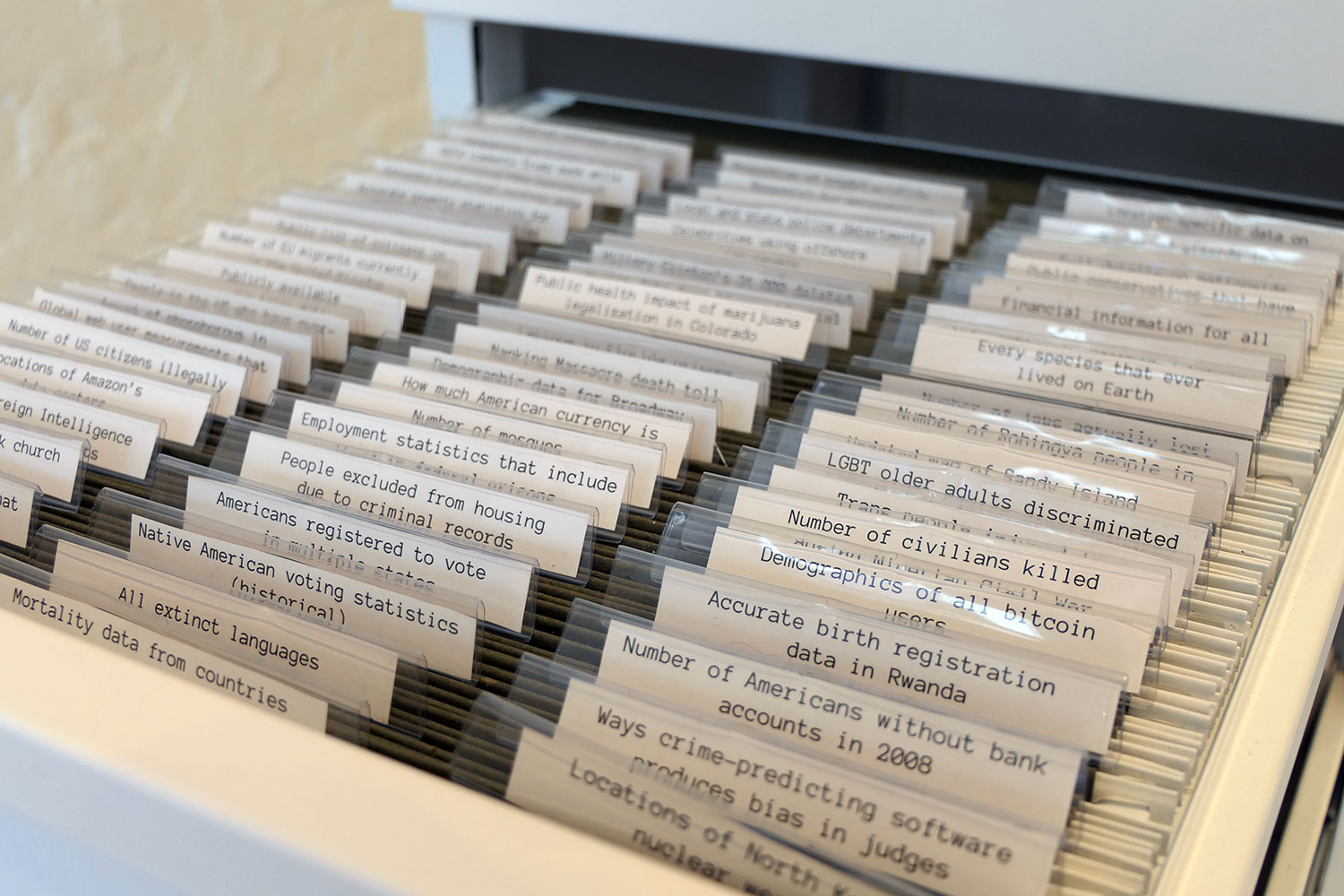“We know where you are. We know where you’ve been. We can more or less know what you’re thinking about.” – Eric Schmidt, Executive Chairman, Alphabet Inc.
“Today’s creepy is tomorrow’s necessity.” – Sean Parker, Napster co-founder, ex-Facebook exec.
“You already have zero privacy. Get over it.” – Scott McNealy, former CEO of Sun Microsystems
The internet has brought unfettered access and unlimited opportunity. It lets us stay in touch with people around the globe, buy goods with the click of a button, and track our health and fitness simply by logging into a website. It also allows an unprecedented level of corporate monitoring, shrinking even the semblance of privacy to a mere memory.
A pop-up art exhibit in lower Manhattan aims to expose some of that corporate monitoring, with 54 exhibits and artwork that reveal a darker side to modern information technology. Curated by Tactical Tech — which helps activists, journalists, and NGOs use digital technologies in their artwork — the exhibit is sponsored by the Mozilla Foundation.
“When you come in there’s a moment of confusion about where you are.”
“Over the last year or two we’ve really come to the conviction that there needs to be a consumer movement for the health of the Internet,” explained Mark Surman, Executive Director of Mozilla, in an exclusive tour of the space Wednesday morning. “We’ve built great things with the Internet, but really, the issues that it raises become even bigger as it wraps all around us encompasses everyone in the world.”
He and the Mozilla group were in Berlin for an executive retreat in March and wandered into an exhibit Tactical Tech was presenting that fit neatly into this role, Surman explained. The New York exhibit, which is open to the public for the next two weeks, is exactly that.
Called “The Glass Room,” the exhibit resembles nothing less than a high tech store. It’s a large, open space painted entirely white, with carefully curated items placed on chest high tables in a neat grid. Each item looks like something for sale – a Macbook or Beats by Dre headphones – and a helpful group of hoodie-wearing “inGeniouses” stroll the space, offering advice on what to buy (and how corporations are using your data).
“We really wanted to intentionally make this look like a high-end design store with a difference, so that when you come in there’s a moment of confusion about where you are,” explained Stephanie Hankey, Executive Director and Co-Founder of Tactical Tech.
The space is divided into four curated areas. In front is Something to Hide, a look at what personal data businesses are currently capturing – and an exploration of something you yourself might have said: “Me? I have nothing to hide.” The work of nine artists fill the space, riffing on location data, passwords, where we live, even what we smell like.
“Smell is one of our senses, but it holds a lot of data too,” Hankey said. For the Smell Dating project, an artist named Tega Brain invited 100 people to wear a white T-shirt for three days, then cut it up and put it into receptacles. Others then smell the receptacles and decide if they want to date someone based on their scent. Sure, it’s meant as a joke, but there’s a deeper message, she said: ”How personal and private are we going to be, and how much information are we willing to share in the context of something like dating?”
Another exhibit incorporates an EEG scanner.
“Sam is an artist from New York,” explained Mark Tuszynski, Creative Director and Co-Founder of Tactical Tech. “When he heard from Amazon that they will soon send you goods before you buy them, because they can predict what you may buy next, he decided to train an algorithm that would pick things from his brain when he sleeps and train it before Amazon sends him the wrong stuff.”
Other areas of the exhibit include Normal Is Boring, an exploration of ambitious and alarming moonshot projects U.S. tech giants are pursuing with their vast wealth; Big Mama, a look at tech innovations that normalize surveillance under the mandate of care; and a Data Detox Bar, a drop-in bar that teaches visitors how to better control their online data and privacy.
The Glass Room is at 201 Mulberry Street in New York City; the exhibit runs Nov. 29 – Dec. 14.
